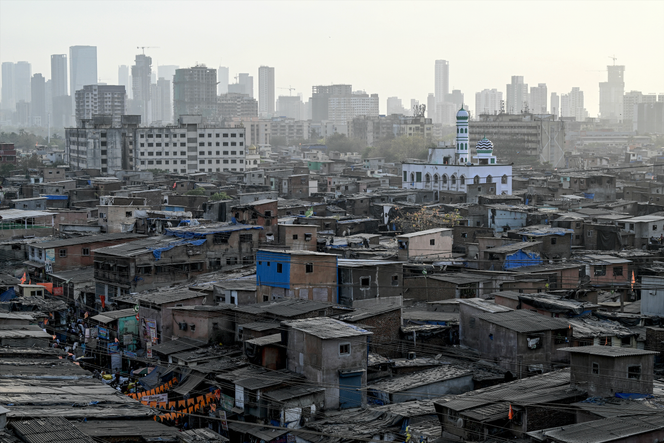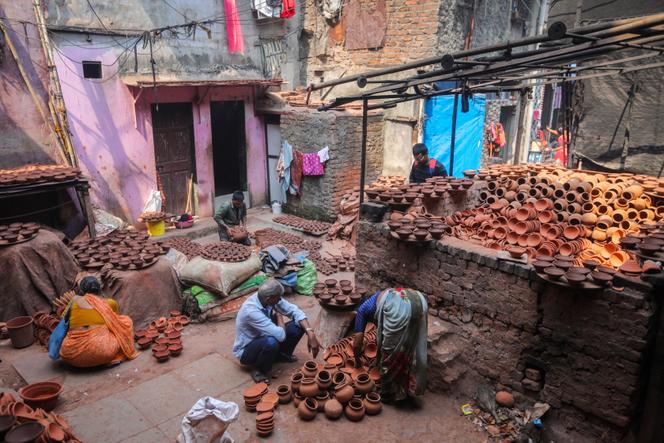


The kilns are working non-stop, spreading acrid smoke over the top floor of Yusuf Galwani's workshop, a three-story house reached by steep iron staircases. They bake diyas − small terracotta candle holders − and oil lamps. Molded one floor below, they would soon be used by Hindu followers for Diwali, the festival of lights, celebrated annually between late October and early November.
The season of religious festivities has begun in India, which for Galwani marks the peak of his business activity. The craftsman exports his products all over the world and employs seven potters who also cast large ornamental pots for Mumbai's major hotels.
The renowned potter doesn't live in a posh neighborhood, but in Dharavi, Asia's largest slum, which has one million residents and a population density of extreme proportions − 354,167 inhabitants per square kilometer − right in the heart of Mumbai. This city within a city offers an extraordinary range of religions, castes, languages, sectors and ethnic groups. A microcosm of India, both impoverished and joyful, with a flourishing informal economy, far removed from the squalor portrayed in the film Slumdog Millionaire, which made it famous.
Dharavi's 240 hectares form a labyrinth of alleyways, where small terraced brick houses sit interconnected − temples, mosques, churches and some 20,000 businesses and specialized workshops. It is here that leather goods, suitcases, backpacks, textiles, clothes, pottery and papadums (thin, crisp flatbread snacks that dry in the sun on huge overturned baskets) are produced. The shantytown also recycles, in boisterous workshops from another century, everything the city throws away: old machinery, car parts, oil cans, chemical drums and bottles. The total annual turnover of these businesses is estimated at one billion dollars (around €920,000 million).

The smoky potters' quarter (Kumbharwada), where Galwani lives, is home to almost 2,500 families. Together with his three brothers, he inherited his parents' house. He was born here and has never lived anywhere else. But his future remains uncertain. The Maharashtra government, run by a coalition close to Prime Minister Narendra Modi, awarded a project to renovate the slum to Indian tycoon Gautam Adani following a bidding process in November 2022.
It wasn't the first − four already failed due to local resistance − but this one has stoked fears, given the billionaire's power and proximity to the Indian leader. Adani easily snatched up the contract, like so many others for projects in India's ports, airports, infrastructure, energy and mining. In Modi's wake, he has built up a gigantic conglomerate active in almost every sector of the Indian economy.
You have 74.45% of this article left to read. The rest is for subscribers only.
